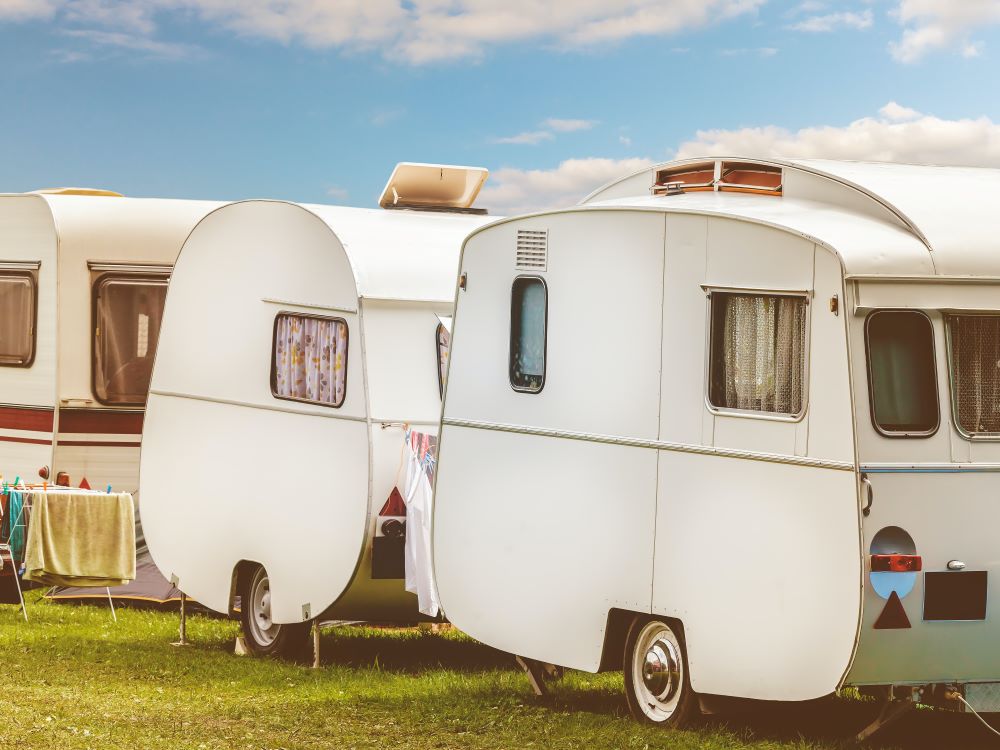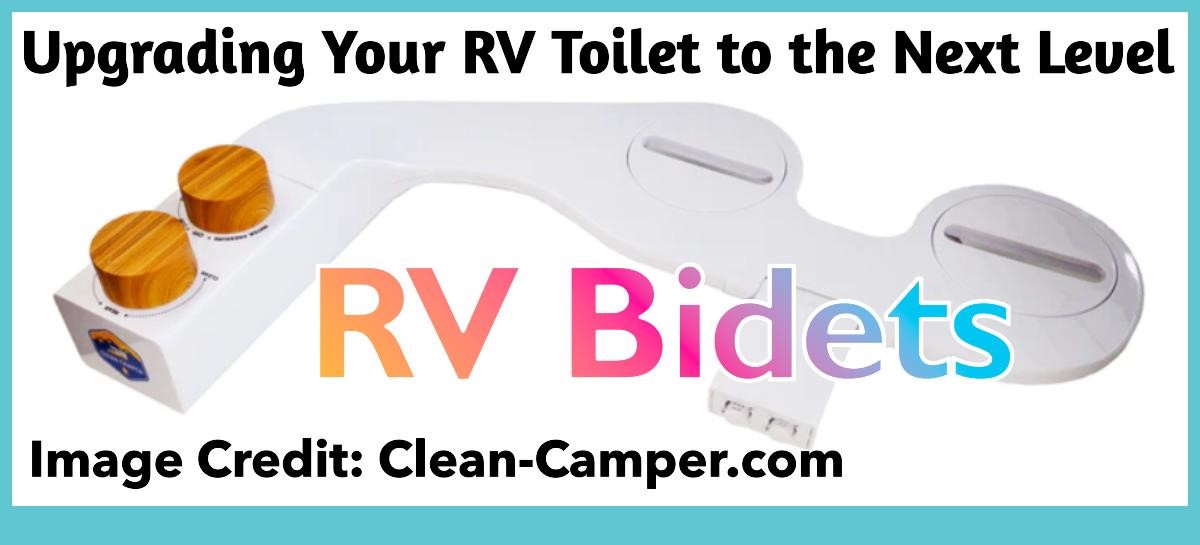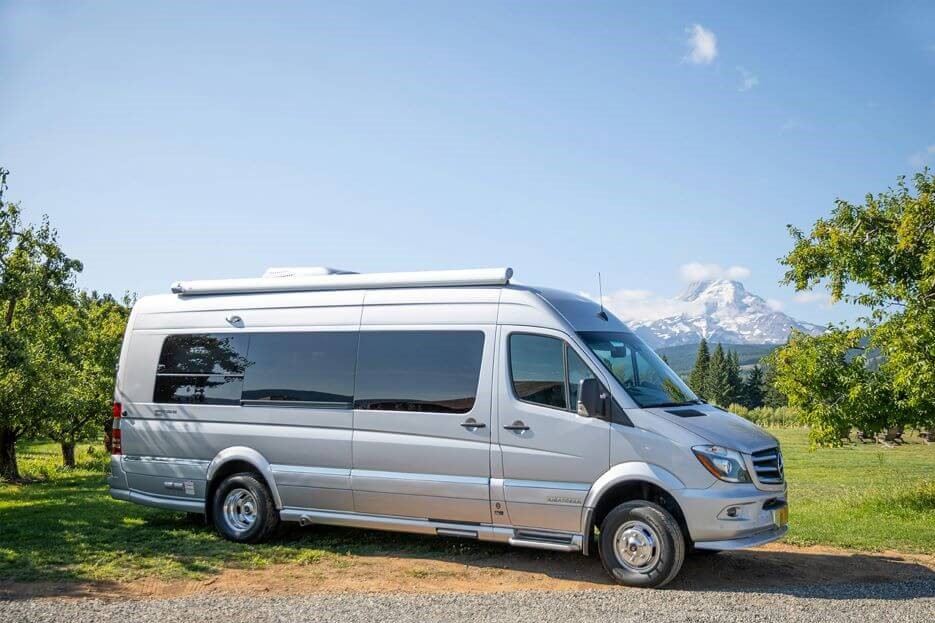SIt can be daunting thinking about moving into an RV and whether or not you’ve thought of all the things first time RVers need to know. We will walk through the basics–from the logistics of getting your rig to your destination, dumping waste water, and choosing the most enjoyable campsite for you. We will offer helpful tips and information for first time RVers.
- Knowing your priorities will save time, money, and energy
- Renting an RV is a great way to see if your vision works for you in reality
- Living in an RV ties together day-to-day chores and vehicle maintenance
What to know as a First Time RVer
Before you commit to an RV, you should know your intention. Do you plan to use it as a camper where you can enjoy refrigeration and television at night after a long day of hiking and mountain biking? Or are you going to move into an RV and travel across the country?
RV Rental Options
Renting an RV, trailer, or fifth-wheel can be a great way to see if the vehicle you’re imagining fits the reality of the lifestyle you envision. You can rent directly from owners, much like Airbnb. Typically they are priced per day and you’ll know exactly how many people can comfortably sleep. This is a great way to try out the exact design you’re considering, or try out a few different options. Outdoorsy.com and rvshare.com are a couple examples of this rental type.
You may also rent from larger companies, who maintain a fleet and work more like a car rental place. CruiseAmerica is a company whose trailers and RVs you’ve likely seen rolling down the road.
You can choose a rental option that works for you. Perhaps you already know which RV you plan to purchase, but want to double-check that you’re comfortable driving long distances in a vehicle that size before committing—you can choose an option that has no mileage limitations and allows drop-off at a different location, such as one of the larger RV rental companies. If you’d like to try out a specific model at your favorite local park, a peer-to-peer rental option might be perfect. Some rental options even offer delivery, so you can have the RV dropped off where you’d like it parked and don’t need to drive it at all!
Towing and Driving Tips
If you’re considering a towable RV or trailer, it’s important to understand and consider your vehicle’s towing capabilities. The Gross Vehicle Weight Rating, often found inside the driver door’s frame or in your owner’s manual, will tell you the total weight your vehicle can tow–this includes the dry weight of the RV, any liquids you’re carrying, cargo, and passenger weight.
A helpful tip for first time RVers is to remember it’s important to ensure you have the correct hitch. Some RVs require a fifth-wheel hitch, while others use a standard trailer hitch.
Practice
If you’re not used to driving vehicles with trailers, or large vehicles similar to your new RV, consider practicing in a safe location, such as a large parking lot, before you plan to hit the road. Attaching and detaching the trailer from your vehicle (if applicable), making turns, driving in reverse, and knowing your tail swing are all skills that will make your trip safe and comfortable when you’re in a tight spot like a gas station or gravel road.

Tail swing refers to the portion of your RV from the very back to right behind the rear axle. This is important to think about because that portion of the vehicle will turn in the opposite direction of where you turn the wheel, meaning that if you’re taking a tight right into a gas station while an exiting driver is waiting to turn, you could hit them with the rear of your RV, even though you easily cleared their car with the front.
Knowing the dimensions and weight of your RV is important, and something you may not be used to if you’ve primarily driven commuter vehicles. Knowing the height of your vehicle will also be important–measure all the way to the top of the highest point. This is important information to make sure you have enough clearance when driving under bridges, canopies, drive-thrus, and some parking lots. The weight of your RV is also crucial because some roads and bridges have weight limits, it will determine your ideal tire pressure, and you’ll need to know the weight if/when you tow your RV. Lastly, knowing the length of your vehicle will be necessary when it comes time to park it, whether that’s in a campground or your driveway.
Take Essential Tools
What you keep in your RV toolkit will be dictated by how you plan to use your RV—if you’re taking it camping an hour from home for the weekend, you don’t need 200 pounds of tools. If you’re planning to be living in your RV, you might want to round out your kit so that you’re prepared when a fix is needed. Your RV is a mix between your home and vehicle.
For roadside repairs, make sure to have a tire pressure gauge, duct tape, bungee cords, jumper cables, a flashlight, and a spare tire. Having RV-specific tools is a great idea, especially if you’ll be traveling for an extended time and in undeveloped wilderness areas.
Think about the things that could go wrong–roof leaks, refrigeration systems, water and sewer components, and minor electrical troubles. Some general tools that you’ll find useful for home-repair type scenarios include: screwdrivers, extension cords, wrenches, pliers, vice grips, a lightweight drill, a socket set, a hammer and nails, and a good utility knife. If possible, it’s a good idea to distribute the weight of your tools throughout your RV and keep them organized by repair type.
Pack Light
One of the hardest adjustments to RV life is getting by with fewer things. While being prepared for any situation has its conveniences, you will have to downsize all of your belongings to what is essential. Though you’re new to the RV lifestyle now, you will become a seasoned expert before you know it. Make sure you have the essentials to get by, and you’ll learn as you go. Instead of trying to prepare for everything ahead of time, make sure you have what you need to ensure peace of mind, but know that your setup and toolkit will change drastically with time and experience.

Deciding Where to Stay
RV campgrounds have all the amenities and hookups that you might need. You will also be near other campers–which can be a great place to find community, get help if something goes awry, and learn about the experiences of others who are living similarly. Campgrounds typically have an associated fee.
“Boondocking” is dispersed camping and does not include the amenities and hookups that come with an established campground. It is a great option for when you want more privacy, wilderness, and feel confident with your setup. Campsites are often free. The drawback is that you are in a more remote location and don’t have the benefits of water, electricity, and other RVers, who may provide community or assistance if you need help.
Have a Route and a Plan to Get There
Another great tip, especially as you begin, having a route in mind with a map is a great idea. There are GPS options, such as Roadtrippers RV GPS, which accommodate for the dimensions and weight of your RV when calculating your route–this can save fuel and headaches compared to using the GPS pre-installed on your phone.
If you’re following the 333 rules, you will arrive at your campsite with plenty of daylight to set up and get situated before the sun sets. It’s wise to arrive before dark, especially when you’re starting out. Not only will you be able to enjoy the sights of where you’re staying, but you’ll have ample time to do chores, setup, and cook before you’re tired and contending with darkness. If you’re at a campground, your neighbors will appreciate being able to relax and sleep soundly without interruption by headlights and the sounds of you setting up your site.
333 Rule Explained
There are 3 3 3 rules for many things–anxiety, survival, dogs, etc. RVing is no different. Especially when you’re on an extended trip, you want to pace yourself for maximum enjoyment. A great rule of thumb is to limit your driving to no more than 300 miles per day. Arriving at your destination no later than 3pm will allow you to have enough time to relax, enjoy your location, and get your chores done. Staying in one place for at least 3 days is the last rule.
How to Triple Check – Tips to Avoid Disasters
When you’re excited to get to your next destination, it can be hard to remember all of the little tasks and chores you need to do before getting moving again. When you’re leaving somewhere, it’s a good idea to triple-check everything.
External:
- Make sure that any awnings or expandable components are in their streamlined and locked position
- Ensure waste tanks and hoses are ready for travel
- Pull in stabilizer legs
- Stow extracurricular items such as bicycles and lawn chairs
Internal:
- Ensure electrical components and tanks are shut off
- Store pots, pans, and appliances
- Secure the refrigerator
- Close bathroom vent
As you gain experience, you’ll be able to modify the list to your specific needs.
Things You’ll Need for RV Living
RV living isn’t always glamorous. But to be safe, sanitary, and comfortable, you’ll need to deal with the more tedious and smelly aspects of RV life.
Leveling Tools
Making sure to park on level ground for the night is very important. Not only will it make it easier to move about your RV and get a restful sleep, but it is important for the functionality of your sewage system and absorption refrigerator. You’ll want to do a little research on the appropriate chocks and levelers for your particular rig, and consider practicing before you’re in the backcountry.
Emptying Holding Tanks
Emptying your RVs holding tanks is one of the grosser chores you’ll have to do. Many RVs will separate greywater from blackwater. Blackwater is everything that ends up in your toilet, while greywater collects everything else from the drains around your RV. When emptying out your tanks, it is a good idea to empty the blackwater tank first, then the greywater, so that the greywater begins to clean out the hose before you store it.
When at an RV park, most dumping stations rely on gravity to empty your holding tanks. If you’d like to avoid paying for these amenities and will routinely be somewhere that you’re able to discard sewage, consider a macerator pump, which allows you to connect a regular 1” hose and run it directly into a toilet.

Frequently Asked Questions
Where should my first RV trip be?
Sticking close to home is a good idea for the first few trips. While it’s not as exciting as heading out across the country, it will allow you to perfect your processes and ensure you have everything you need for longer excursions.
How long should you drive in an RV?
While the 333 rule is a great rule of thumb, this depends on your personal preference and style! You may decide that there is plenty to explore while traveling fewer than 300 miles per trip, or you may be comfortable seeing the scenery from your windshield and setting up later at night as you become experienced.





